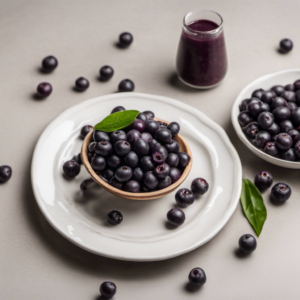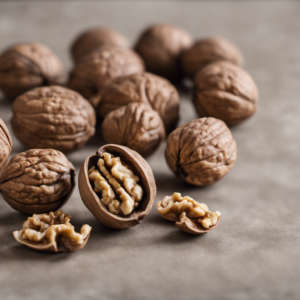Micronutrients are essential nutrients that are needed in small amounts to ensure normal body function. They include vitamins, minerals, trace elements and phytochemicals. These little helpers are involved in a variety of biological functions, including metabolic processes, immune system function, and cell development and function. They also play an important role in maintaining healthy bones, teeth, and eyes. In modern nutritional science, superfoods rich in these micronutrients have found a firm place. These nutrient bombs often come from exotic regions, but domestic products can also be classified as superfoods. They contain highly concentrated amounts of healthy nutrients and have been shown to support overall well-being and health.
What are superfoods?
Superfoods are foods that have a high density of nutrients and health benefits. They contain a rich palette of micronutrients, antioxidants and other health-promoting substances. These foods can help protect the body from harmful free radicals, boost the immune system, boost energy, and promote overall well-being.
Examples of superfoods and their micronutrients
- Açai berries:
- Antioxidants: Fight oxidative damage and promote heart health.
- Unsaturated Fatty Acids: Support heart health and reduce inflammation.
- Acerola cherries:
- Vitamin C: Supports the immune system and promotes iron absorption.
- Walnuts:
- Alpha-linolenic acid (ALA): An omega-3 fatty acid that has anti-inflammatory effects and supports brain function.
- Micronutrients such as selenium, zinc, copper, manganese, chromium, molybdenum and calcium: Support a wide range of bodily functions.
- Goji Berries:
- Vitamins A and C: Support the immune system and skin health.
- Antioxidants: Fight oxidative damage.
- Chia Seeds:
- Omega-3 fatty acids: Support heart health and reduce inflammation.
- Fiber: Promotes digestion and supports satiety.
- Matcha Tea:
- Catechins: A type of antioxidant that protects against oxidative damage and promotes heart health.
- L-Theanine: An amino acid that promotes relaxation and lowers blood pressure.



Comparison with conventional foods
Compared to conventional foods, superfoods often offer a higher concentration of certain micronutrients. Their rich nutrient composition can help fill nutrient gaps and promote the absorption of essential micronutrients. However, it is important to emphasize that even conventional foods can provide a variety of micronutrients. A balanced and varied diet that includes different food groups is crucial for achieving the recommended daily nutrient intake.
Conclusion
Superfoods can be a valuable addition to a balanced diet and provide an additional source of essential micronutrients. Their concentrated nutrient density makes them an excellent source for promoting health and overall well-being. By incorporating superfoods into the daily diet, we can benefit from the numerous health benefits that micronutrients provide. However, it is crucial to follow a diverse diet to maintain a wide range of nutrients and promote optimal health.
